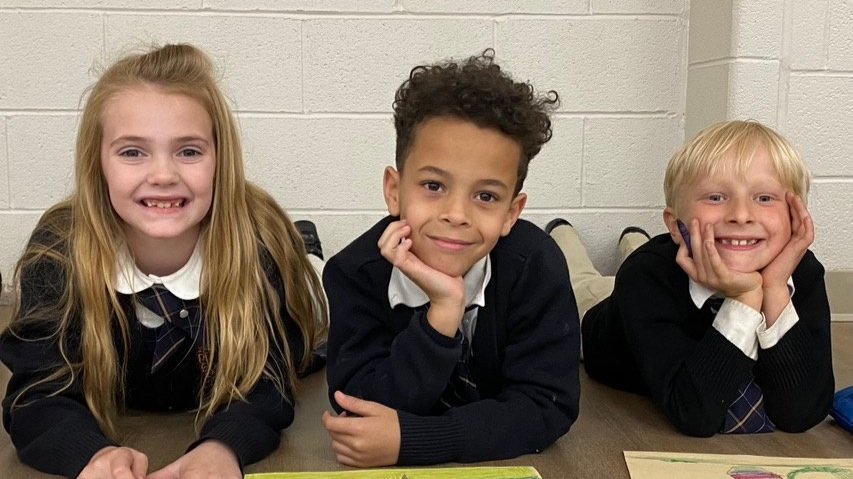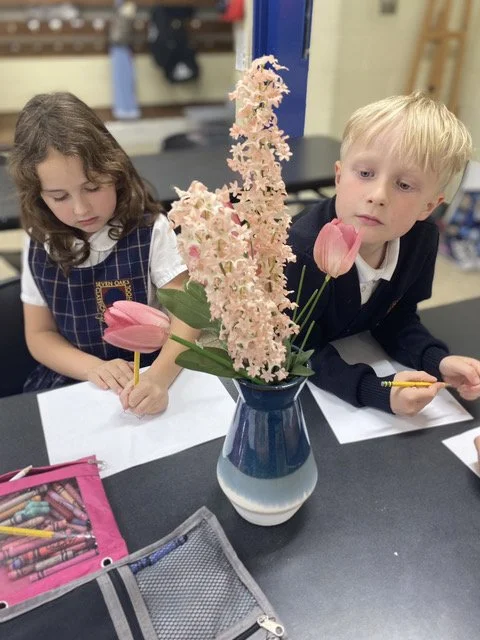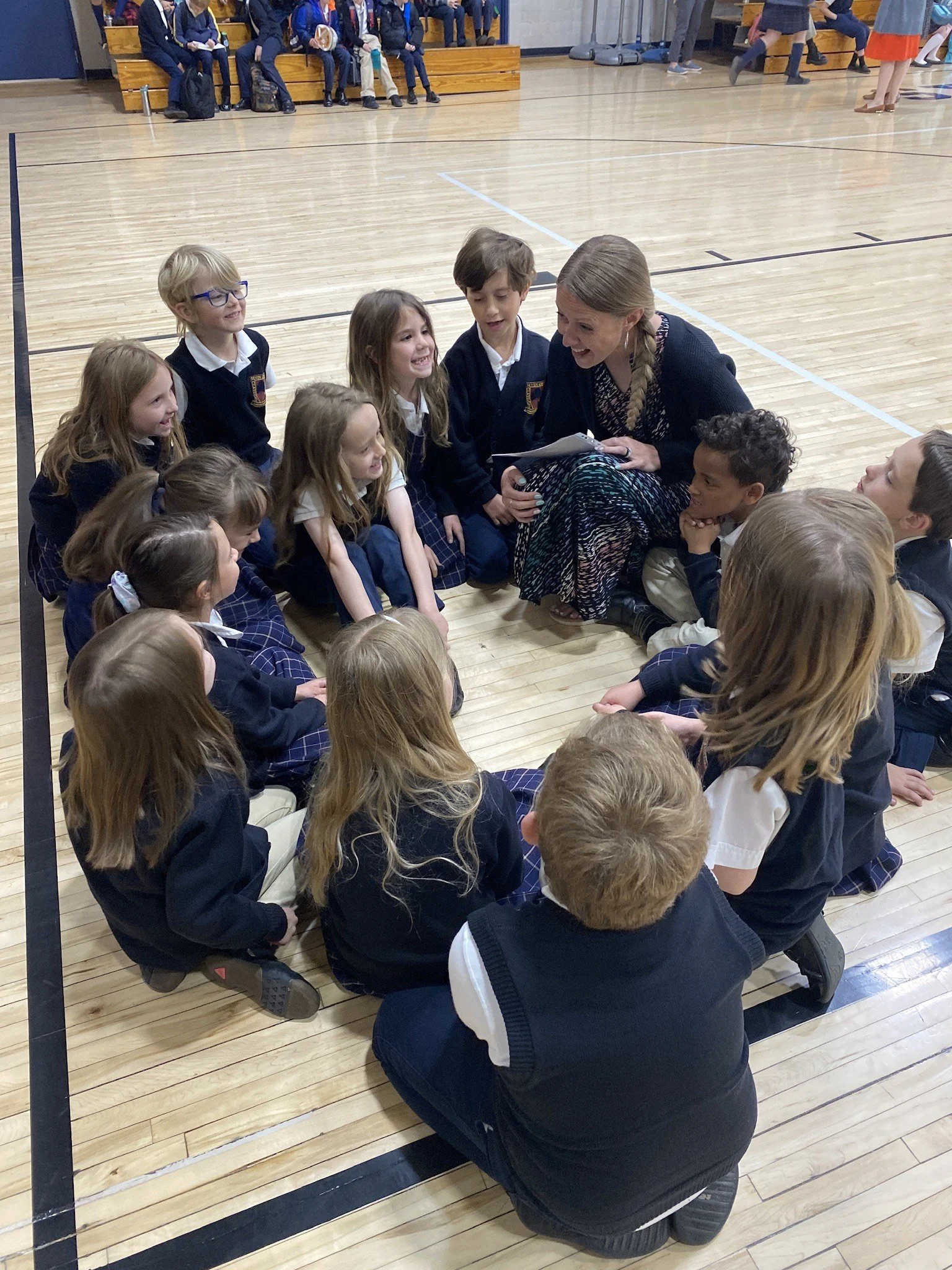
Grammar School
“The word ‘education’ comes from the Latin ‘educere’ = e- (out of) + -ducere (to draw). Education is not just about putting information in. We have forgotten that it, in fact, begins in the child’s heart.”
- Vince Gowmon
Grammar School
The Seven Oaks Grammar School includes Kindergarten through Fifth Grade. The education is designed to give students a firm foundation for all subsequent learning, to help students begin building successful habits, and to feed a sense of wonder and joy. It feeds the mind and imagination through a time-tested, content-rich, cutting-edge curriculum.
Foundations: Students benefit from traditional techniques. They learn phonics and their math facts. They learn penmanship and cursive. They learn how to diagram a sentence and how to solve a math problem in their head.
Balance: The day alternates between academics, free play out-of-doors, and the arts.
Variety: Students receive steady instruction not only in reading, writing, and arithmetic, but also science, history, geography, literature, poetry, physical education, art, and music.
Character: Students are not only challenged to learn facts, but are encouraged to think about good habits and decent character—qualities such as integrity, perseverance, respect, courage, self-government, and citizenship.
Nurture: Students are cared for by a homeroom teacher who teaches them all of the core subjects and communicates regularly with parents to help shepherd the students through these formative years.
Personalization: Care is taken to know each student as an individual and to support and stretch students, whatever their background or ability.
Literacy Instruction:
Literacy Essentials, by Access Literacy, is a form of explicit phonics instruction in the Orton-Gillingham family of curricula. This approach lays the foundations for high levels of literacy through explicit, intensive phonics instruction. Students learn all 71 phonograms in the English language and the rules for their use, as well as penmanship and grammar. For more information, see www.accessliteracy.com/.
By the time you leave the grammar school:
You have started learning French and Latin.
You’ve read your first work of Shakespeare.
You are skilled in diagramming sentences and you’re becoming increasingly comfortable with all the basics of composition.
You’ve studied every major world civilization up through the early modern period (including what we know of each civilization’s art and music), and U.S. History through the closing of the frontier.
You will have read and discussed the tales of Beatrix Potter, Charlotte’s Web, Farmer Boy, Alice in Wonderland, King Arthur, Treasure Island, Secret Garden, Sherlock Holmes, and Anne of Green Gables, just to name a few.
Maybe you’ve won a Declamation Contest or a Spelling Bee; or perhaps you’ve performed with the Musical Theatre; or perhaps you’re eager to join the Cross Country or Track teams after participating in Running Club; or maybe you’ve made friends outside of your immediate grade through Chess Club.


